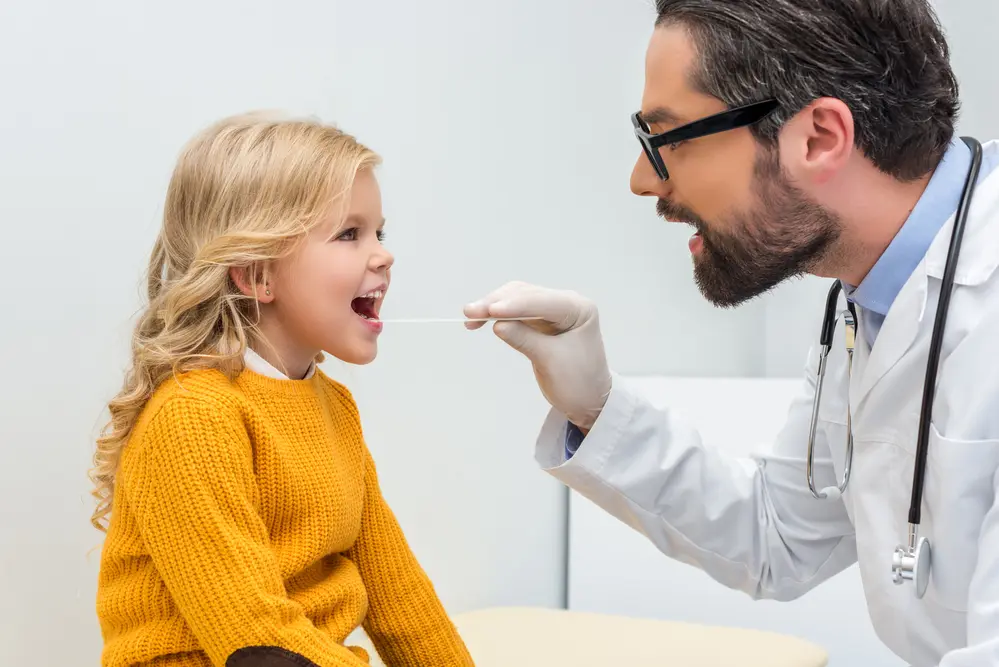Pediatric clinical research is critically important to the future of the medical field. But how can parents ensure their children are being treated fairly, ethically, and safely? Parents may rightfully be concerned about protections for children in clinical research; however, the Department of Health and Human Services (HHS) and the Food and Drug Administration (FDA) both have a number of protections in place for all pediatric studies. Find out more about the ways clinical research organizations protect children during research trials.

Protections for Children in Clinical Research
The Importance of Children in Clinical Research
First, let’s review the importance of pediatric clinical research. The Food and Drug Administration (FDA) reports that only about 20 percent of drugs are currently labeled for pediatric use. Since children respond to drugs differently than adults, medical researchers need safe pediatric trials to ensure effective treatment for childhood illness. Pediatric clinical research can also help improve palliative care measures for pediatric patients.
What Protections Exist for Children in Clinical Research?
It is understandable that parents may have concerns before enrolling their child in pediatric trials. However, any proposed pediatric study must comply with specific protections. First, if a proposed study involves children and is supported or conducted by HHS, the research institution must comply with HHS’s special regulatory requirements. Likewise, if the proposed research involves FDA-regulated products, then researchers must comply with the FDA’s parallel regulations. These regulations include a wide array of protections:
- First, regulations dictate protections for obtaining child and parental consent. The HHS states that children are “persons who have not attained the legal age for consent to treatments or procedures involved in the research, under applicable law of the jurisdiction in which the research will be conducted.”
- General HHS regulatory requirements demand that researchers must “consider the potential benefits, risks, and discomforts of the research to children and assess the justification for their inclusion in the research.”
- Researchers should consider the circumstances of the children in the study, including their health status, age, and ability to understand the research. This must take place before finalizing research procedures.
Ensuring Child Safety in Research
To ensure child safety, research organizations must also determine which of the four categories of research apply to that study, if any:
- Research not involving greater than minimal risk to the children
- Research involving greater than minimal risk but presenting the prospect of direct benefit to the individual subjects
- Clinical research involving greater than minimal risk and no prospect of direct benefit to individual subjects, but likely to yield generalizable knowledge about the subject’s disorder or condition
- Research not otherwise approvable which presents an opportunity to understand, prevent, or alleviate a serious problem affecting the health or welfare of children
These categories will help medical professionals better educate parents and children about potential outcomes and safety practices.
Educating Parents in Clinical Research
When young children participate in clinical research, educating parents is also a crucial safety measure. For example, one pediatric health report explains that parents must never be pushed or coerced into enrolling a child into a research trial. Any perceived coercion is not only unethical, but potentially unsafe. By working together with the child’s medical team, parents can empower and educate themselves in a way that allows them to make the best choice for their child.
_____
Protections for children in clinical research are essential to achieving positive trial outcomes. Those protections are evolving every day as medical professionals work toward medical equality for children and adults alike.
Have you ever thought about participating in a clinical research study? You could be a part of history! And QPS Missouri is looking for new participants. Since opening its doors in 1994, QPS Missouri has conducted over 1,000 FDA-regulated studies, paying out over $35 million to local participants. Your local participation could have a global impact, as QPS is an international leader in contract research with facilities in North America, Europe, and Asia. Our mission is to accelerate the development of drugs worldwide by enabling breakthroughs in pharmaceutical innovation. This includes several pediatric studies across several age ranges. If you would like to join us in this crucial healthcare mission, consider applying for a clinical research study.
To get started, you simply need to fill out an online application. Within 48 business hours, a recruiting coordinator will contact you for your pre-screening assessment. To learn more, please visit the QPS Missouri website, review the study participation process, or check out our list of frequently asked questions.
